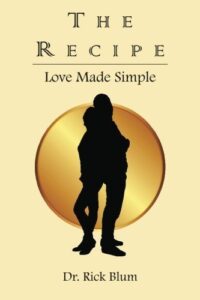My previous post (on becoming “unstoppable”) prompted one thoughtful reader to notice that becoming distracted from ones goals is a common challenge.
I have been thinking about that since reading her post.
A man in his 90s once wrote that, if every day is a precious opportunity when one’s last days are in view, then it was just as precious in the early days, just unnoticed at the time.
Forgetting this insight, people tend to kill time, as if it is a cheap commodity.
Those individuals in harm’s way sometimes promise themselves that, if only they might survive, they will never forget the gift of living.
Later, they may tell you that this proved impossible to maintain.
Maybe it is less that we forget about the gift of time, but more that we are distracted from it.
When we become distracted, where do we go, and how can we return?
If I count attention-traps, I come up with three, all of them addictive – thus the trap: addictive self-stories (beliefs about one’s life), addictive self-pity, and addictive pleasures.
Self-stories, the narratives I tell myself about my life, can be addictive because they justify my mistakes.
They are “if only” stories; in other words, I could grow and change, if only my circumstances were different.
They are addictive because my narrative explains how it is not at all my fault.
The price I pay is that I have to keep making the story come true, or else I was wrong in the first place.
One solution: learn to love being wrong – it means you can reach higher.
Second, addictive self-pity, the pull of bad moods, can become surprisingly addictive because it makes you feel helpless, like a child.
Why is helplessness addictive?
Even if your childhood was neglectful or terrible, someone had to take care of you sometime and somehow for you to be here.
Feeling like a child can be addictive because it is oddly comforting, associated with feeling nurtured.
The price one pays for too much self-pity is becoming stuck in life.
One solution: make the urge to regress aware and choose consciously how much time to spend there.
Third, physical pleasures are addictive because of a strange quality of the physical experience.
To paraphrase AA, whatever a person likes best, if pursued, can become overpowering and make one’s life unmanageable.
For example, people who don’t much love to drink can drink freely on the occasions they wish.
Substitute any pleasure: eating highly caloric foods, playing video or other games, or sexual/romantic interactions.
It seems almost cruel of nature or God (whichever is your personal metaphor).
Whatever you most like to do tends to become addictive; meanwhile, people who do not care so much can feel free to indulge.
Maybe this curse is also a blessing.
At least, this is a theory of mine.
It corrects for the tendency to miss the other (non-physical) dimensions of experience.
Naturally, the physical dimension of life is the most tangible element of experience, thus the most distracting.
The addictive nature of physical pleasures painfully pushes people to expand their experiences, bringing us to the other joys of intellectual pursuits, spiritual connections, and loving contributions.
The next time you find yourself distracted from your goals, ask yourself whether the trap is your story, excessive self-pity, or addictive pleasures.
Then, start to change direction.
(Please share these posts! Just hit the “share” button, below. You can access my Twitter posts through the button in the top menu, above. In addition, after hitting the Facebook button at the top, if you “Like” my page, you will get my “Wall” posts on your Facebook news-feed. I have been posting on Facebook first. Then, after getting feedback, I usually revise and expand the post and publish it on this blog.)



